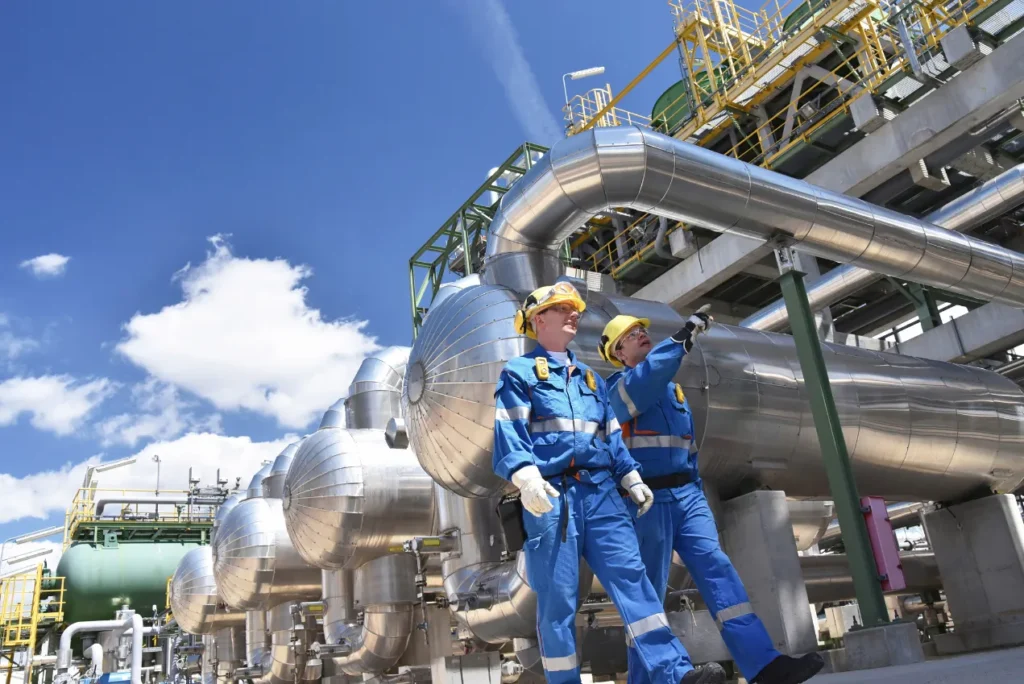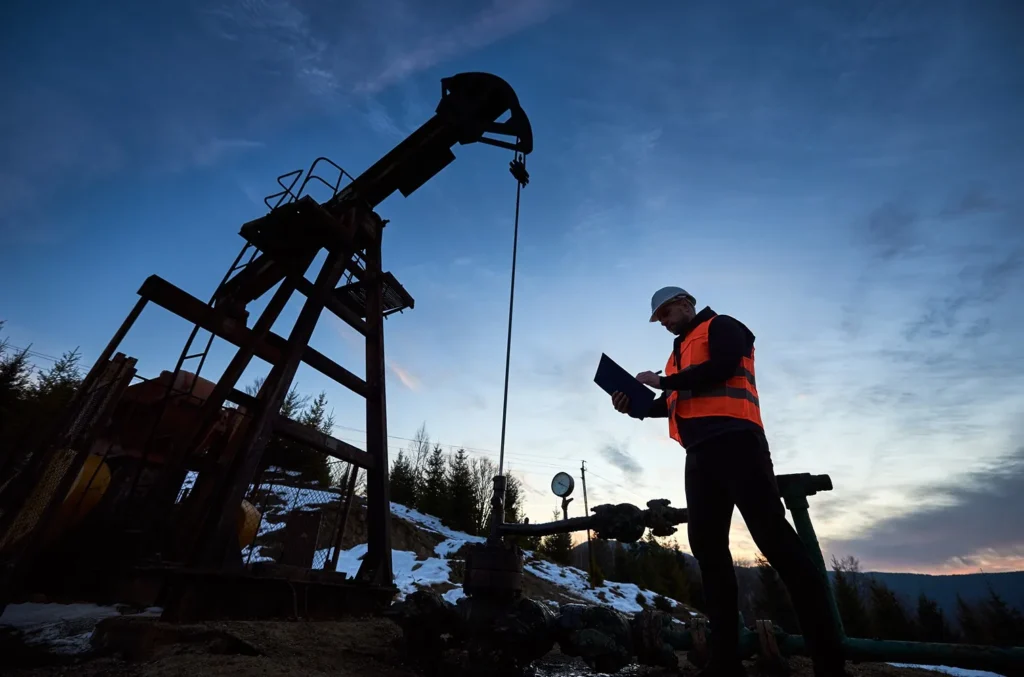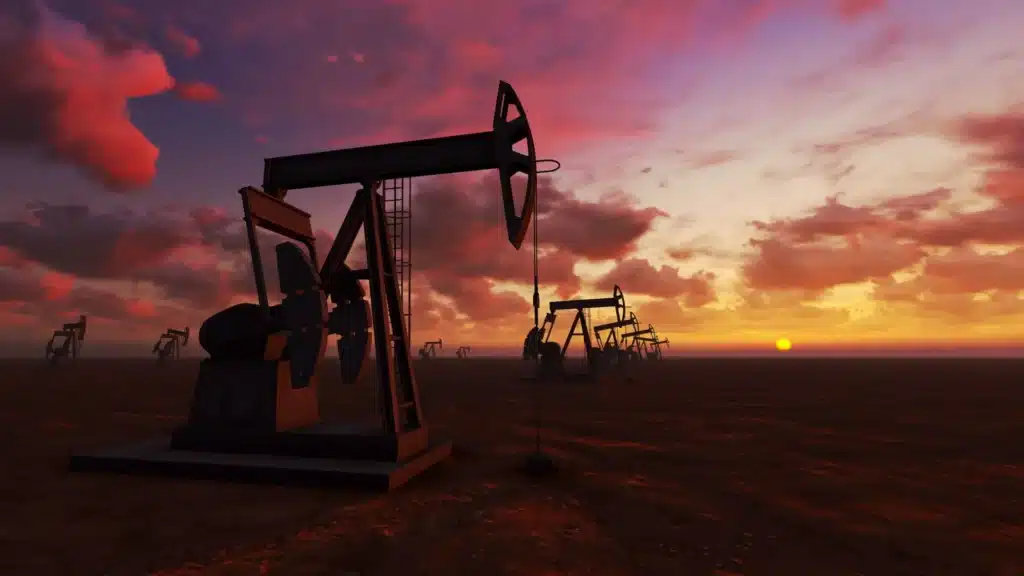Legal Support for Injury Victims
If you’re searching for a reliable Midland, TX oil field injury lawyer, at Cesar Ornelas Injury Law, we understand the severe impact that oil field accidents can have on your life. With a proven track record of securing significant settlements, our team is dedicated to fighting for your rights and ensuring you receive the compensation you deserve. Don’t face this challenging time alone—reach out to Cesar Ornelas Injury Law today at 210-957-2103 for a free case evaluation and let us help you on the path to recovery.
Oil field Accident Claims in Midland, TX
Working in an oil field can mean commanding a very good salary, but it can also involve tremendous risks to a worker’s personal safety. Anybody who suffers injuries in an accident on the job in the oil field industry will want to quickly contact a Midland oil field injury lawyer for help holding negligent parties accountable and recovering financial compensation to help pay for the many costs arising from such injuries.
The most recent statistics from the United States Bureau of Labor Statistics (BLS) show 120 fatal work injuries within the oil and gas extraction industry, with the three most frequent fatal events being transportation incidents (41 percent), contact with objects and equipment (25 percent), and fires and explosions (15 percent). The most recent report from the Centers for Disease Control and Prevention (CDC) states that there were 69 fatalities, with Texas having the most of any state with 44 and 43 deaths in relation to well servicing.
Understanding Your Rights After an Oil field Accident
As a worker in the oil and gas industry, you have rights. If you’re injured in an oil field accident in Midland, you may have the right to claim compensation through workers’ compensation insurance. Alternatively, you can file a personal injury lawsuit if certain conditions apply.
At Cesar Ornelas Injury Law, we help you decide whether workers’ compensation or a personal injury lawsuit is best for your situation by thoroughly evaluating the specifics of your case. If your injury was caused by a coworker’s negligence and your employer provides workers’ compensation insurance, filing a workers’ comp claim might be the most straightforward option. However, if your injury was due to defective equipment, pursuing a personal injury lawsuit against the manufacturer could potentially offer more comprehensive compensation.
By analyzing factors such as the cause of your injury, the parties involved, and the extent of your damages, we guide you to the best legal path to ensure you receive the maximum compensation you deserve.
Evaluating Your Case: How We Assess Oil field Accident Claims

A comprehensive case supporting your claim hinges on a thorough investigation of all accident details. By digging into these details, we can better understand the circumstances surrounding your accident and develop a strategy tailored to your case’s unique needs.
Securing Fair Compensation for Injuries and Losses
Securing fair compensation goes beyond legal representation. At Cesar Ornelas Injury Law, we help victims secure necessary medical care and devise financial plans for their future recovery. Our legal team helps clients with:
- Assessing compensation options
- Offering guidance to make informed decisions
- Advocating vigorously to protect their interests during trial or negotiation
The process involves comprehensive documentation of the incident, evidence gathering, witness interviews, and detailed compensation calculations. Expert witnesses may be retained to aid in reconstructing the oil field accident and clearly exhibiting the circumstances of its occurrence. This comprehensive approach ensures the best possible outcome for our clients.
Oil Field Workers’ Compensation in Midland
Unlike many other states, Texas does not mandate that employers carry workers’ compensation insurance. This means that some employers may choose not to subscribe to this insurance program. When an employer does not provide workers’ compensation, they are considered “non-subscribers” and are not protected by the same legal shields that subscribing employers enjoy. Non-subscribers can be directly sued by injured employees for negligence, which can result in substantial financial liability for the employer. While workers’ compensation insurance offers a structured and generally more predictable process for both employers and employees to handle workplace injuries, it is not a legal requirement in Texas.
In Texas, private-sector employers, including those in the oil field industry, can opt to provide workers’ compensation insurance. This insurance can protect them from personal liability in the event of a workplace accident. When an oil field worker in Midland is injured and covered by workers’ compensation, the employer is responsible for reporting the injury to their insurance carrier and initiating the compensation claim process.
For non-urgent ongoing health treatment after an oil field accident, workers in Midland are often required to consult a list of approved doctors provided by their employer’s workers’ compensation insurance. This process can be challenging and is one of the many reasons why having an experienced oil field injury lawyer from Cesar Ornelas Injury Law on your side is beneficial.
When Workers’ Compensation Isn’t Enough: Exploring Additional Claims

- Your employer does not provide workers’ compensation insurance
- You’re a self-employed contractor without your own coverage
- A third party’s actions caused your injury
In these cases, you might need to consider a personal injury claim. This path may lead to a more comprehensive form of compensation that covers all aspects of damage, including physical, economic, and emotional harm. Insurance companies often aim to underpay claims, underlining the need to seek additional claims.
Third-Party Liability for Enhanced Recovery
Third-party liability claims offer an avenue for enhanced compensation. They enable injured Midland oil field workers to seek compensation beyond what’s offered by workers’ compensation when another party, apart from their employer, is responsible for the injury. If a worker is injured due to a faulty piece of equipment, they may be able to file a third-party liability claim against the equipment manufacturer. This could provide additional compensation for medical expenses, lost wages, and pain and suffering.
These claims encompass a range of scenarios, including negligent manufacturers in the event of equipment failure or other parties responsible for maintaining equipment whose neglect led to injuries. Legal professionals assist workers by identifying liable third parties and proving negligence, which may involve suing the third party responsible for the injury.
Common Causes of Oil Field Injuries in Midland
Oil field work is a very dangerous profession that involves a number of extreme risks in a variety of daily functions. Workers can be susceptible to many kinds of injuries because of the many dangers they face.
Common kinds of accidents involving oil workers can include, but are not limited to:
- Slips and Fall Accidents — Slips or trips and falls often lead to severe injuries for oil field workers, and some falls can even be career-threatening. Several workers face such dangers while working on elevated rigs, although many of the incidents may have been prevented with proper safeguards that may not have been in place.
- Improper Training — Even though workers in oil fields or on oil rigs should have the most experience, several companies and drillers will employ inexperienced workers or other people who are not entirely qualified to be working in oil fields. Inexperienced oil field or oil rig workers may be unaware of specific safety procedures, protocols, and regulations, meaning they lack knowledge of how to correctly use certain kinds of equipment, machinery, or other tools, and the negligence of these parties can easily have consequences pitting the lives of others at stake.
- Electrocutions — Several offshore oil rigs will have electrical components and electric shocks in the oil field industries happen when workers come into direct contact with certain types of electronic equipment, energized power lines, or power lines.
- Explosions and Fires — Any kind of fire starter may easily ignite many different kinds of flammable gasses from trucks, wells, and tanks, including open flames, static electricity, or other heated elements. Explosions and fires have the potential to spread very quickly and injure even more people.
- Equipment Failures or Defective Equipment — There is heavy machinery on work sites necessary for drilling, pulling pipes, mixing mud, or any one of many other jobs occurring on worksites that need to be safe for all workers to use and then only used by the individuals who have the proper training for operations and safety, but failure to maintain the equipment or to allow people who do not have the proper training to use the equipment can lead to devastating accidents.
- Well Blowouts — Blowouts refer to uncontrolled releases of crude oil or natural gas from oil or gas wells when pressure control systems fail. While most modern wells have blowout preventers to prevent these incidents from happening, accidental sparks during blowouts may lead to oil or gas fires.
- Employee Fatigue — Oil fields are usually 24-hours-a-day operations, so many workers put in 12 or more hours of work a day. This often means that many kinds of accidents on oil field sites are the simple result of employee exhaustion.
- Hazardous Chemicals and Fumes — Hydrogen sulfide may be the most well-known toxic chemical on oil sites, but there are many other hazardous chemicals that workers could inhale while performing their jobs, and such chemicals may cause many later issues with the health of the workers.
Kind of Midland Oil Field Negligence

- Failure to properly train employees
- Ignore safety requirements
- Failure to properly communicate safety procedures
- Workers without safety equipment
- Failure to maintain equipment
- Improper scaffolding or rig construction
Common Oil Field Transportation Incidents in Midland
Keeping in mind how common transportation incidents are a cause of oil field worker injuries, these kinds of accidents can stem from a number of possible causes. Some of the most common reasons they occur generally include, but are not limited to:
- Driver Inexperience — Operating an oil field truck can require proper training and experience, but some drivers simply do not have the proper amount of experience. Trucking or oil field companies could be liable for failing to hire qualified drivers.
- Poor Maintenance — Trucks used in oil fields must undergo proper safety checks and regular maintenance necessary for safe operation. If a company tries to save time or money by neglecting maintenance, the result can be a serious accident.
- Driver Fatigue — Again, several oil field employees who are operating oil field trucks could drive or otherwise put in work for far longer hours than other drivers because they are exempt from federal hours of service (HOS) regulations governing how long they can drive.
- Speeding — Any large oil field truck will take longer to slow down or stop when it is traveling at a faster speed. This means that any truck exceeding the speed limit might not be able to avoid a crash.
- Driving While Intoxicated (DWI) — DWI is obviously a criminal offense in Texas for all drivers of all ages, and there is no special exemption for oil field truck drivers. Any truck driver operating while under the influence of alcohol or drugs can face criminal charges but also become liable for any injuries they cause.
- Distracted Driving — An oil field truck driver could cause an accident if they are distracted by any number of things within their vehicle or outside the vehicle, with people using cell phones often being one of the most common distractions.
- Unsecured or Uneven Loads — An oil field truck that does not have its load properly stabilized could be more unstable and may tip over or sway into nearby lanes when a truck driver lacks proper training. Some loads could also fall off trucks and into oncoming traffic, or drivers could lose control of their trucks.
Types of Oil Field Accident Injuries
The first thing any individual should do after suffering injuries in an oil field accident is to visit a hospital. Obtaining medical care will not only ensure that you did not sustain a serious injury that involves delayed symptoms, but you will also create a medical record that will be beneficial for any injury claims you might file.
Some of the more common oil field injuries include burn injuries, which victims may suffer while working with caustic substances. In other cases, workers suffer serious burn injuries while working with flames or hot objects, and particularly severe burns can cause permanent disfigurement.
Traumatic brain injuries (TBIs) are another common kind of injury, and people who suffer TBIs will not exhibit the same symptoms of injuries that are common with other types of injuries, even though the effects are far-reaching. TBI victims could suffer from many physical, psychological, and cognitive issues.
Common Kinds of Injuries Oil Field Workers Suffer:
Head injuries such as concussions
- Neck injuries
- Head and face injuries
- Back injuries
- Arm injuries
- Leg injuries
- Sternum and chest injuries
- Eye injuries or vision loss
- Broken bones or fractures
- Severe burn injuries
- Spinal cord injuries
- Paralysis
- Limb loss
- Sprains
- Abrasions and lacerations
- Abdominal wall injuries
- Soft-tissue injuries
- Intestinal injuries
- Bruised or fractured ribs
- Nerve damage
- Concussions
- Internal organ damage
- Hearing damage
- Severed limbs and amputations
- Torn shoulder muscles and tendons
In the most serious cases, oil field accidents may cause death. The families of deceased oil field workers may be able to file wrongful death actions.
Damages in Oil Field Accident Cases
While many oil field workers are able to file workers’ compensation claims, the benefits will only be for medical bills, lost income, and death considerations. The benefits will be limited by state law.
Higher damages, however, may be sought in civil actions against other negligent parties, meaning “non-subscriber” employers without workers’ compensation insurance coverage. When you file a lawsuit against a negligent party in an oil field accident case, you may be able to recover compensatory damages.
Compensatory damages relate to both economic and non-economic damages. The Texas Civil Practice and Remedies Code defines economic damages as compensating people for actual economic or pecuniary losses, while noneconomic damages are damages for non-financial losses.
A common kind of economic damage will be medical bills because most victims will be incurring all kinds of costs relating to ongoing medical care. No victim should have to pay these expenses out of their own pocket.
Other Economic Damages
- Lost Wages
- Property Damage
- Rehabilitation Expenses
- Physical Therapy Costs
- Costs of Long-Term Care
A common kind of noneconomic damage can be loss of enjoyment of life because certain injuries will severely impact how a victim is able to carry on. Some injuries may prevent people from engaging in their favorite activities and strictly limit what they are able to do.
Other Kinds of Noneconomic Damages
- Emotional Distress
- Mental Anguish
- Pain and Suffering
- Loss of Consortium
- Physical Impairment
- Loss of Companionship and Society
- Inconvenience
- Injury to Reputation
- Pain and Suffering
- Disfigurement
- Physical Limitations
The Human Cost: Addressing Fatal and Devastating Injuries
The human cost of oil field accidents can be devastating. Common injuries include falls from height, crush injuries, struck-by accidents, explosions, chemical exposure, and vehicular accidents. These incidents can lead to severe injuries resulting in high medical costs, lost wages, and life-altering conditions like traumatic brain injury, broken bones, neck injuries, severe burns, permanent physical scarring, and post-traumatic stress disorder.
Steps to Take Following a Midland Oil Field Accident
Being aware of the actions to take after an oil field accident can significantly impact your recovery and potential legal proceedings:
- Activate Emergency Response Procedures: Immediately following an accident, it’s crucial to lock down equipment, shut off power, and call for emergency assistance. This helps contain the situation and minimize further harm.
- Secure the Accident Area: After addressing immediate dangers, ensure the health and safety of all personnel by securing the accident area to prevent further injuries or damage. This step is essential to protect others and maintain a safe environment.
- Seek Immediate Medical Attention: Prompt medical attention is paramount. Obtain a professional medical diagnosis to determine the extent of injuries and begin appropriate treatment. This not only aids in recovery but also provides necessary documentation for any subsequent claims.
- Report the Accident: Inform your supervisor about the incident as soon as possible and provide a detailed account of what happened. Accurate reporting is important for an official accident report and for protecting your legal rights.
- Document Everything: Keep detailed records of your injuries, medical treatments, appointments, and costs incurred. This information is vital for supporting your compensation claims and ensuring you receive the appropriate benefits.
- Consult with an Oil Field Injury Attorney: Before discussing the incident with workers’ compensation insurance adjusters or other investigators, seek legal advice. An attorney can help protect your rights and guide you through the legal process to ensure you don’t inadvertently harm your case.
By following these steps, you can help protect your well-being and ensure your rights are safeguarded after an oil field accident.
Immediate Medical Attention and Documentation

Besides obtaining medical help, it’s necessary to diligently record the following information related to your medical bills:
- Your injuries
- All medical treatments
- Appointments
- Costs incurred
This information can be important in any subsequent compensation claims. Following your doctor’s instructions, attending all follow-up appointments, and appropriately managing your prescriptions and treatments are essential steps in your recovery and support your compensation claims.
Reporting the Incident: Ensuring Proper Procedures Are Followed
Accurate incident reporting is a required step after an oil field accident. Report the incident to your supervisor as soon as possible and be as transparent as you can about the accident and any pain you’re experiencing. An official accident report should be filed with the Texas Department of Insurance’s Division of Worker’s Compensation within eight days of the injury or first work absence.
It’s advised not to discuss the incident with workers’ compensation insurance adjusters or other investigators without consulting an attorney. Discussing the incident without legal counsel can lead to misinterpretations or statements that could be used against you in your claim. Insurance adjusters and investigators are trained to minimize the liability of their employers, often aiming to reduce the compensation payout. An experienced oil field injury attorney from Cesar Ornelas Injury Law can help you with these interactions, ensuring that your statements are accurate and that your interests are represented. We can also assist in gathering and presenting evidence, negotiating settlements, and, if necessary, representing you in court. By having legal representation, you can focus on your recovery while we handle your case.
How Cesar Ornelas Injury Law Can Help You
At Cesar Ornelas Injury Law, we offer extensive legal services to oil field accident victims including personalized attention and a tailored strategy for each case to ensure that you receive the best possible representation for your specific needs.
We assist clients with the entire legal process, including handling insurance claims and medical appointments, allowing you to concentrate on recovery. We operate across multiple cities in Texas and New Mexico, offering a team of attorneys well-versed in local laws and courtrooms. We handle a wide range of practice areas to better serve our clients:
- Personal injury
- Auto accidents
- Commercial vehicles
- Motorcycle accidents
- Wrongful death
- Workplace injuries
- Trucking accidents
- Spinal injuries
- Aviation accidents
- Brain injuries
- Oil field accidents
- Oil rig accidents
- Oil refinery accidents
- Catastrophic injuries
- Premises liability
- Product liability
Take the first step towards securing the compensation and justice you deserve. Contact Cesar Ornelas Injury Law at 210-957-2103 for a free case evaluation. Our dedicated team is ready to stand by your side, offering personalized support and relentless advocacy to help you through this challenging time. Reach out now and let us help you on the path to recovery.
Frequently Asked Questions
What should I do if my employer denies my workers’ compensation claim?
If your employer denies your workers’ compensation claim, it’s essential to seek legal advice immediately. Document all communications and gather any evidence that supports your claim, such as medical reports and witness statements. An oil field injury attorney can help you understand your rights and the next steps, which may include filing an appeal with the Texas Department of Insurance’s Division of Workers’ Compensation.
Can I be fired for filing a workers’ compensation claim after an oil field accident?
No, it is illegal for an employer to retaliate against an employee for filing a workers’ compensation claim. If you believe you were terminated or faced other forms of retaliation because you filed a claim, you could have a case for wrongful termination. Legal action can be taken to protect your job and secure any compensation you are entitled to for the retaliation you experienced.
What types of compensation can I receive from a personal injury lawsuit?
In a personal injury lawsuit, you can seek various types of compensation, including medical expenses, lost wages, and pain and suffering. Additionally, if the injury results in long-term disability or affects your ability to work in the future, you may be entitled to compensation for future lost earnings. Punitive damages may also be awarded if the employer’s negligence was particularly egregious.
How long do I have to file a lawsuit after an oil field accident?
In Texas, the statute of limitations for filing a personal injury lawsuit is generally two years from the date of the accident. However, it’s crucial to act quickly to ensure that evidence is preserved and witnesses are available. Consulting with a lawyer as soon as possible can help you understand the specific deadlines that apply to your case.
What are my legal options if I am injured by defective equipment in an oil field?
If you were injured by defective equipment, you might have a product liability claim against the manufacturer or distributor of the equipment. This type of claim can provide compensation for medical expenses, lost wages, and other damages. Your lawyer can help you gather evidence to prove that the equipment was defective and that the defect directly caused your injury


 Head injuries such as concussions
Head injuries such as concussions


